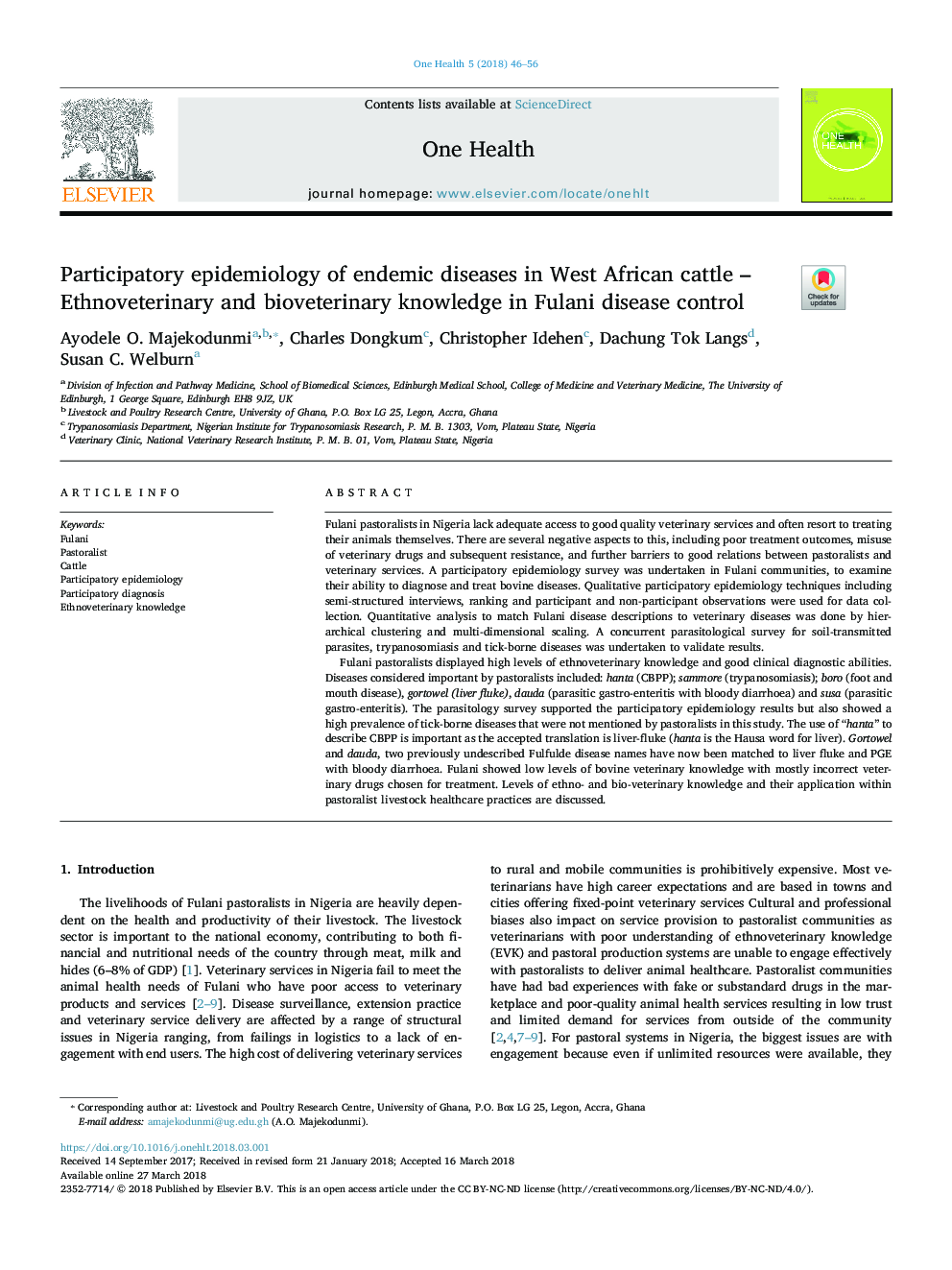| Article ID | Journal | Published Year | Pages | File Type |
|---|---|---|---|---|
| 8843013 | One Health | 2018 | 11 Pages |
Abstract
Fulani pastoralists displayed high levels of ethnoveterinary knowledge and good clinical diagnostic abilities. Diseases considered important by pastoralists included: hanta (CBPP); sammore (trypanosomiasis); boro (foot and mouth disease), gortowel (liver fluke), dauda (parasitic gastro-enteritis with bloody diarrhoea) and susa (parasitic gastro-enteritis). The parasitology survey supported the participatory epidemiology results but also showed a high prevalence of tick-borne diseases that were not mentioned by pastoralists in this study. The use of “hanta” to describe CBPP is important as the accepted translation is liver-fluke (hanta is the Hausa word for liver). Gortowel and dauda, two previously undescribed Fulfulde disease names have now been matched to liver fluke and PGE with bloody diarrhoea. Fulani showed low levels of bovine veterinary knowledge with mostly incorrect veterinary drugs chosen for treatment. Levels of ethno- and bio-veterinary knowledge and their application within pastoralist livestock healthcare practices are discussed.
Related Topics
Life Sciences
Immunology and Microbiology
Immunology and Microbiology (General)
Authors
Ayodele O. Majekodunmi, Charles Dongkum, Christopher Idehen, Dachung Tok Langs, Susan C. Welburn,
